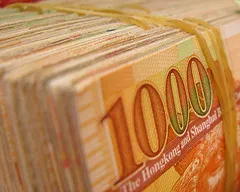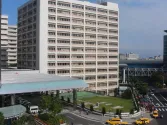
It doesn't end with pork: Hong Kong’s inflation shoots to 35-month high
The country’s consumer price inflation rose to 5.6% yoy in June.
HSBC expects inflation to hit a 3-year high next month, before peaking between 5.8 and 6% towards the end of Q3.
Here’s more form HSBC:
| Hong Kong's inflation story does not end with Chinese pork. Though significant, food is not the only concern where prices are concerned. Hong Kong has multiple other inflation drivers to deal with, including the lagged transmission of last year's residential property price rises, record loose monetary conditions courtesy of the US Fed, and a deteriorating ability to ramp up production to satisfy local demand. We expect inflation to hit a 3-year high next month, before peaking between 5.8 and 6% towards the end of Q3. Facts Stripped of distortions from government subsidies, underlying inflation hit a post-2008 high too, accelerating to 5.5%y-o-y versus 5.1% previously. Food and residential rental drove 70% of June's headline CPI increase. Besides elevated international food and commodity prices, the government highlighted in its outlook that "domestic cost pressures may also increase as a result of the brisk expansion of the local economy since early 2010". Implications Putting food and commodity prices aside, prices in Hong Kong are also being driven by other factors. Last year's residential property price increases are still trickling through the economy, not only via higher rents but also via higher prices of nonhousing related items due to the wealth effect that resilient asset prices have had on aggregate demand. Thanks to the simultaneous pick up in both job creation and wage growth, Hong Kong has entered a cycle in which tighter and better job market conditions are encouraging local households and businesses to spend more. As they spend more, overall demand heats up further, keeping businesses hiring and wages rising. Even without May's introduction of the minimum wage, we think strong demand would have kept wages rising for a while longer. The cost to an economy that's growing above potential is structurally higher inflation, especially if the economy is running out of spare capacity to step up potential output in order to meet rising demand. Even once food and property price inflationary drivers ease off, and even once excessively monetary conditions start to normalize via the first US Fed rate hike which our US colleagues forecast will come in 4Q 2012, headline and core inflation will likely stay above our previous long-run trend benchmark of 4.2%. Expect inflation to average at 5% this year and 5.3% in 2012. |
Photo from wZa HK



















 Advertise
Advertise









